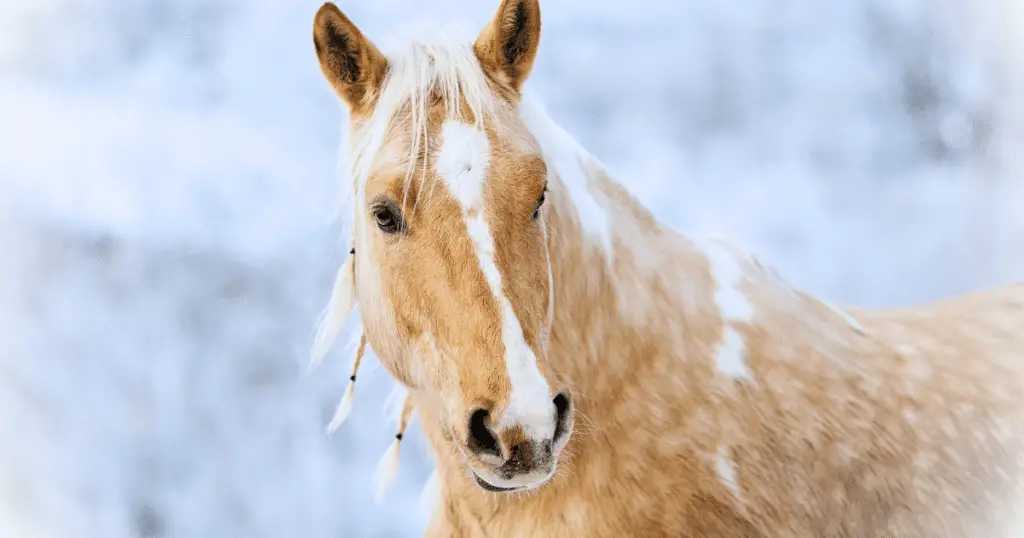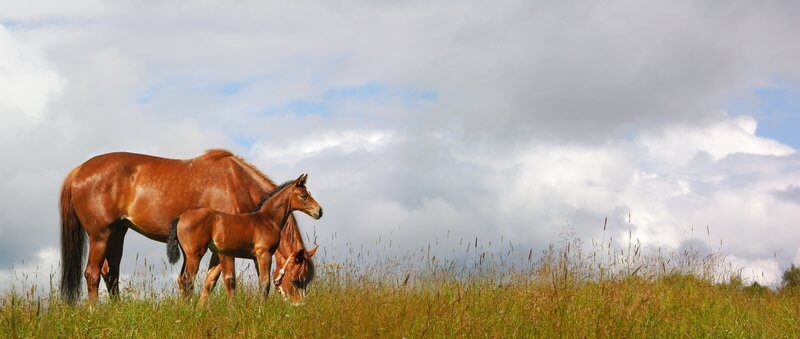If You Are Expecting: Part 1
A mare’s gestation is normally between 320 and 345 days – that’s a long time to wait for something to go wrong. Before your precious bundle arrives, there are three important areas of your mare’s health that you need to consider. In this article, we discuss the first, If You Are Expecting: Her Nutrition.

If You Are Expecting: Part 1
Mare Care: Nutrition
Nutrition during pregnancy is vital for the growing fetus’ optimum development, as well as proper colostrum and milk production during lactation. The most common error is over-feeding the pregnant mare and under-feeding the lactating mare.
When feeding the pregnant mare, it’s easiest to break it into three periods:
- First two trimesters
- Last trimester
- Lactation
Feeding Your Mare
The first period is the best time to modify a mare’s body condition if required. Losing or gaining weight is safest during this period. Overweight mares risk having birthing problems, due to poor muscle tone and condition; whereas, underweight mares risk having no energy stores for birthing.
The second period sees the fetus increase in size and weight by two-thirds. While your mare requires more energy and nutrients from her feed during this period, allowing your mare to gain too much weight can lead to problems for the foal.
Finally, the third period is one of high physiological stress for the mare. The lactating mare’s nutrient requirements are greater than any other class of horse. Your mare’s nutrition must adequately support her recovery from parturition, and give her the nutrients she needs to produce colostrum and milk for her newborn foal.
Coming Up
Next week, we discuss the second most important aspect of mare care during pregnancy.
Do you want to learn more about horse health? Click here to receive our free bi-weekly educational reports.



